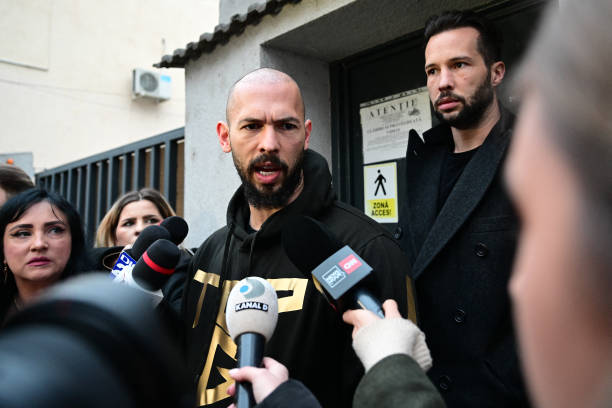The trial of controversial influencer Andrew Tate and his brother Tristan is set to move forward in Romania, according to a recent announcement by the court in Bucharest. The court’s decision comes after months of deliberation over prosecutors’ evidence and amidst ongoing appeals from the accused.
Andrew Tate, 37, and Tristan, 35, were arrested in December on charges including rape, human trafficking, and forming a criminal gang, all of which they vehemently deny. The allegations against the internet personalities also extend to the UK, where they are wanted for alleged sexual offenses.

The brothers, both dual UK-US nationals, are accused of exploiting women through an adult content business that prosecutors claim operated as a criminal enterprise. The indictment, published in June of the previous year, also implicated two female Romanian associates and identified seven alleged victims.
Andrew Tate, known for his controversial views and previous bans from social media platforms, has consistently dismissed the charges against him as baseless. He has alleged a conspiracy to silence him and has challenged the Romanian prosecutors’ evidence.

The court’s decision to proceed with the trial follows a prolonged process during which the accused had the opportunity to contest the prosecutors’ evidence before a preliminary chamber. Despite the ongoing appeals and objections from the defense, the court determined that the case meets the necessary legal criteria to proceed to trial.
Reacting to the court’s ruling, the brothers’ lead counsel, Eugen Vidineac, criticized the decision, asserting that it lacks legal basis and reasoning. He indicated that a robust appeal has been filed, contesting the lawfulness of the ruling and seeking further legal recourse.

As the legal proceedings continue, the case has garnered significant attention due to the high-profile nature of the defendants and the serious nature of the allegations against them.
The outcome of the trial will have implications not only for Andrew and Tristan Tate but also for the broader discussion surrounding online influence, criminal accountability, and the rights of alleged victims.
